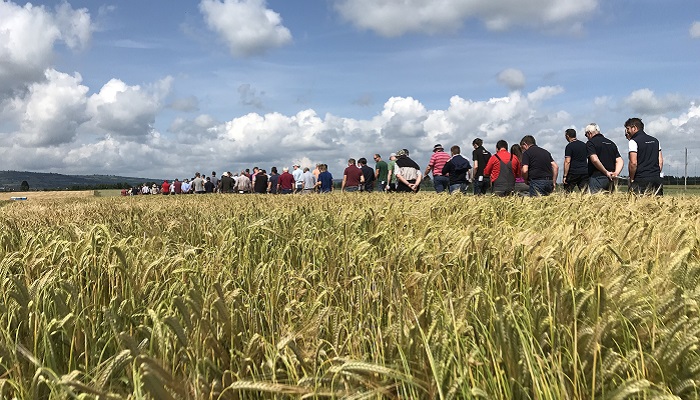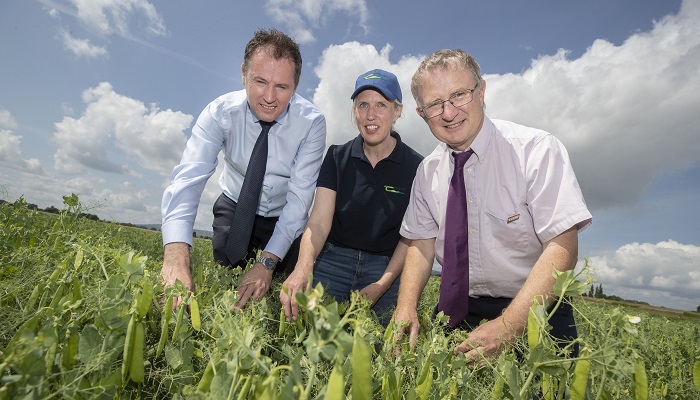21 June 2023
Highlights from the Teagasc Crops Open Day

Supporting the tillage sector through research supported knowledge transfer is key to tackling the challenges that lie ahead. This was the consistent message at the Crops and Cover Crop Cultivation Open Day at Teagasc Oak Park today, Wednesday, 21 June.
Over 80 research demonstrations highlighted the ongoing research programme Teagasc has with both national and international partners.
Cover cropping is a positive action to reduce nitrate leaching from leaching-prone sites. However, trade offs do exist with the careful selection of cover species, time of sowing and matching cover crop to the rotation all important considerations to ensure the range of environmental, agronomic and economic benefits of cover cropping materialise.
With any crop, it starts with the cultivation, and in partnership with the Irish Farmers Journal, cover crop and stubble cultivation demonstrations at the open day in Oak Park highlighted the flexibility across eight separate establishment methods. In parallel, new weeding technologies capturing robotic and camera guided systems were on display in a horticultural demonstration that provided a snapshot of possible developments in the tillage sector of the future.
The sustainability of that future tillage sector is dependent on the need to develop high-value markets that exploit current and future cropping systems, but there is also a need to ensure inputs are tailored to meet regulatory challenges.

Viewing Protein Crops Research at the Crops Open Day taking place in Teagasc Oak Park today, Wednesday, 21 June., (L to R) were: Minister for Agriculture, Food and the Marine, Charlie McConalogue TD with Sinead Fitzsimons, U-Protein Project Manager Teagasc and Director of Teagasc Frank O’Mara. Pictured by Finbarr O’Rourke.
Head of the Teagasc Crops Research Department, Dr. Ewen Mullins said: “Developing added value for farmers while designing management regimes that minimise the cost of production, and the impact of farming on the environment are our primary objectives to support the tillage industry. The loss of crop protection products is significant, especially to cereal crops and emphasises the need for Integrated Pest Management (IPM). The first step to achieve this is enhancing our capacity to survey and characterise the prevalence of pests and diseases, which is essential to support IPM actions”.
In this regard, the event highlighted the substantial programme of field and diagnostic work surveying diseases in oats, beans, barley and wheat to mitigate the impact of pests and pathogens on profitability and the essential steps around blackgrass and sterile brome management in all tillage establishment systems. Grower’s perceptions on establishment systems were presented as well as an update on the ongoing oats agronomy initiative, designed to support future publication of an Oats Grower’s Guide.
The positive contribution of plant protein crops such as fava bean and pea to rotations, and legume intercropping to tackle agronomic hurdles, was emphasised and matched with displays demonstrating the functionality of protein from these crops as an important food ingredient, based on the requirements of food processors.
With over 3,500 present at the event, attendees also received updates on current carbon modelling research as part of the new Teagasc Climate Reserach Centre, the economic potential of organic tillage systems plus the expanding Signpost Programme with over 40 industry partners, highlighted important actions for stakeholders to support the transition towards more sustainable farming systems.
Also read: Mechanical weed control demonstration in field vegetables in Oak Park
